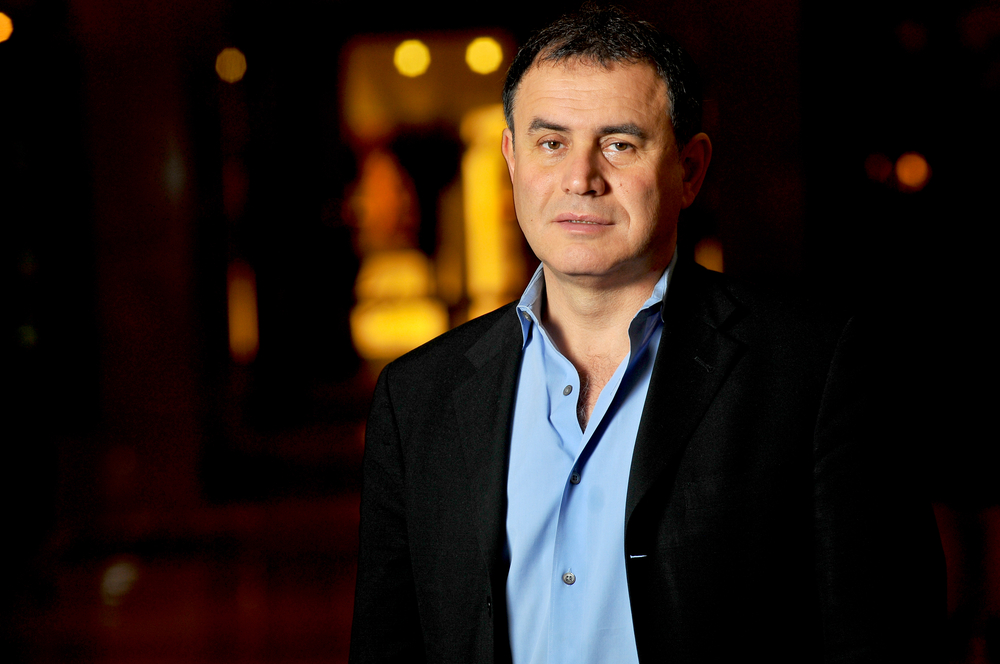Business
Dr. Doom: A ‘Greater Depression’ Awaits Us

Nouriel Roubini, known as “Dr. Doom” for his often bearish outlook, is out with his latest prognostication. It shouldn’t surprise you that he sees trouble ahead for our country.
Roubini says that our government essentially learned nothing from the 2007-09 financial crisis. Additionally, through hubris or simple unwillingness to change, it made another crisis all but inevitable.
He goes on to say that even if we are fortunate enough to see a U-shaped recovery from the coronavirus pandemic, a much more devastating L-shaped “Greater Depression” will follow at some point this decade due to 10 “ominous and risky trends.”
1. Deficits And Their Corollary Risks: Debts and Defaults
Roubini points to the trillions of dollars in fiscal stimulus that our government has thrown at the economic collapse brought on by the pandemic. It amounts to a GDP that is 10% or greater when debt levels were already sky-high.
Coupled with growing public-sector debt, private-sector debt will be under pressure as well with roughly 30 million Americans now out of work. Without income to pay their debts, Roubini says mass defaults and bankruptcies will soar, creating an “even more anemic recovery than the one that followed the Great Recession a decade ago.”
2. A Demographic Time Bomb
The coronavirus has shown that we need to spend a significantly greater amount of money on our healthcare system. But, as Roubini points out, we have an aging demographic that will require greater usage of our healthcare system in the future. With fewer taxpayers paying into the system than those drawing from it, increasing funding for our already underfunded health care and social security system will become increasingly burdensome in the future.
3. Growing Risk of Deflation
The pandemic has created what economists call “slack” in the system, that is the under-utilization of resources like machines and labor (due to mass unemployment). The lack of economic activity is also causing the prices of commodities like oil to plummet. Roubini then says this increases the likelihood of deflation, which in turn increases the chance a company goes insolvent. We’ve seen this recently in the oil and gas industry as the price of crude oil fell companies have started to file for bankruptcy.
4. Currency Debasement
Roubini says that as central banks try to fight the deflation we just mentioned, their monetary policies will become even more “unconventional and far-reaching.” Long-term, he says negative supply shocks from “accelerated de-globalization and renewed protectionism will make stagflation all but inevitable.”
5. Digital Disruption of the Economy
Almost 30 million Americans are now unemployed and earning less. Because of this, Roubini says the income and wealth gap will get blown wide open. He also believes this will cause companies to increase their automation to drive down costs. This further depresses wages and causes the “fanning the flames of populism, nationalism, and xenophobia.
6. De-Globalization
Roubini believes the pandemic will cause the United States and China to decouple faster. He also thinks “most countries will adopt protectionist policies to shield domestic firms and workers from global disruptions.”
He adds, “The post-pandemic world will be marked by tighter restrictions on the movement of goods, services, capital, labor, technology, data, and information. This is already happening in the pharmaceutical, medical-equipment, and food sectors, where governments are imposing export restrictions and other protectionist measures in response to the crisis.”
7. The Backlash Against Democracy
Roubini believes that during periods of high unemployment, economic weakness and rising inequality that populism gains a foothold. He says that during this economic insecurity, foreigners are often made the scapegoat as proposals to limit migration and trade pop up in populist rhetoric.
8. A Geostrategic Standoff Between the U.S. and China
Trump has made every effort to blame China for the pandemic, Roubini points out. China will use this to accuse Trump of “conspiring to prevent China’s peaceful rise,” he said. The breakup of American-Chinese arrangements in trade, technology, investments, etc. will increase.
9. A New Cold War Between The U.S. And Its Rivals — China, Russia, Iran, and North Korea.
With a presidential election approaching, all sides will then step up their cyber warfare. This could potentially lead “even to conventional military clashes.”
10. Environment Disruption
A year ago, nobody could have predicted the COVID-19 pandemic. Roubini says these type of epidemics “are like climate change, essentially man-made disasters, born of poor health and sanitary standards, the abuse of natural systems, and the growing interconnectivity of a globalized world. Pandemics and the many morbid symptoms of climate change will become more frequent, severe, and costly in the years ahead.”
Up Next:















